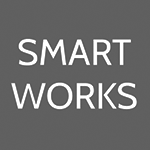At some point in your career you’ll be asked that all important, but all dreaded question…
“What are some of your greatest workplace strengths?”
It can be worded in a different way, but the effect will always be the same. And in our line of work as a banking and financial recruitment company, we really have heard every phrasing possible.
So what are your workplace strengths?
This can be asked in an interview for a new role, or it could be in a performance evaluation. At some point that question or a similar one will creep up, and when the time comes, you want to have a solid answer.
Why are questions like this asked so frequently?
Well, the person interviewing wants to make sure that your strengths fit in with what the company needs, and whether you have the capabilities to thrive in their team.
Knowing how likely it’ll be to hear a question along these lines in an interview should make it easier for you to have an answer ready to go, but a lot of times we hear about struggles with answering it effectively.
That’s often because questions like these require you to tread carefully between two paths: too humble or overselling yourself.
If you’re too humble, you’ll often undersell your achievements and skills.
If you oversell yourself you can easily come across as self-interested, and as a result, may appear unable to work in a team.
So how do you find the right balance between the two and identify your key workplace strengths?

Initial assessment
An incredibly popular way to assess your strengths is through using S.W.O.T.
S.W.O.T. refers to Strengths, Weaknesses, Opportunities and Threats.
Where should you start when using this method?
Jodie Shaw recommends the following approach:
Break each area into relevant questions and divide a paper into four quadrants (one each for strengths, weaknesses, threats, and opportunities).
Some examples of questions you could ask yourself for the strengths part could be:
- What are my unique selling points?
- What makes me right for the company I’m applying to?
- Who am I professionally?
- Do I have any experience that’s relevant to the company I’m applying to?
- What other talents do I have?
- If I had to choose something what would I say I am I proud of myself for?
And, of course;
- Why should they want to hire me?
After doing a thorough analysis consider asking those who know you well to provide you with honest feedback. You can then apply the analysis to match your strengths with opportunities, or weaknesses to areas or situations you should avoid in the future.
Our top tip is to identify five key strengths and then match them to the requirements and skills that are needed in the job descriptions for roles you’re interested in!
You can figure out which strengths to include in the next section.

What strengths should you refer to?
Now that you’ve identified your best strengths, it’s time to decide which are the most relevant to your position. So which strengths should you go for?
Interpersonal
Mentioning interpersonal skills as a strength means you’re great at communication.
You’re able to work in a team or group, and with people in general.
These skills are vital in all areas of life, including work, education and socially.
They also relate to emotional intelligence and being able to understand your own emotions and others.
Knowledge
This strength relates to skills gained through education, experience, or both. These can be computer skills, industry knowledge, qualifications, languages, social media skills and more.
If there are skills mentioned in the job description, remember that other candidates will have that skill too.
However, there is no reason you can’t give an example or two about your proficiency.
Transferable
This strength is the ability to have portable skills, these can be relevant and helpful across different areas.
Most of us already have transferable skills, whether you’ve developed them in your time in education, at home, the workplace or at social events.
It’s always a good idea to identify and provide examples of skills you have developed along the way, as it can show employers that you’re right for the role you’re applying to.
What next?
It’s very unlikely that you won’t get asked any questions relating to your strengths.
So during your interview try and stay alert to opportunities to communicate your strengths which are most relevant.
Try and relate previous roles you’ve had to strengths you’ve gained from those positions.
In the case you can’t find the opportunity during the interview, you can always add them in at the end if you’re asked if you have anything to add.
Not sure where to start on your job search?
That’s where we come in.
We are Campbell & Fletcher Recruitment, a finance and banking recruitment company specialising in the career management of the highest calibre people in banking and financial services across the UK.
Looking for your next role in banking and financial services?
Check out our current list of opportunities here, and visit our LinkedIn and Twitter to keep up to date with any new or upcoming roles.



